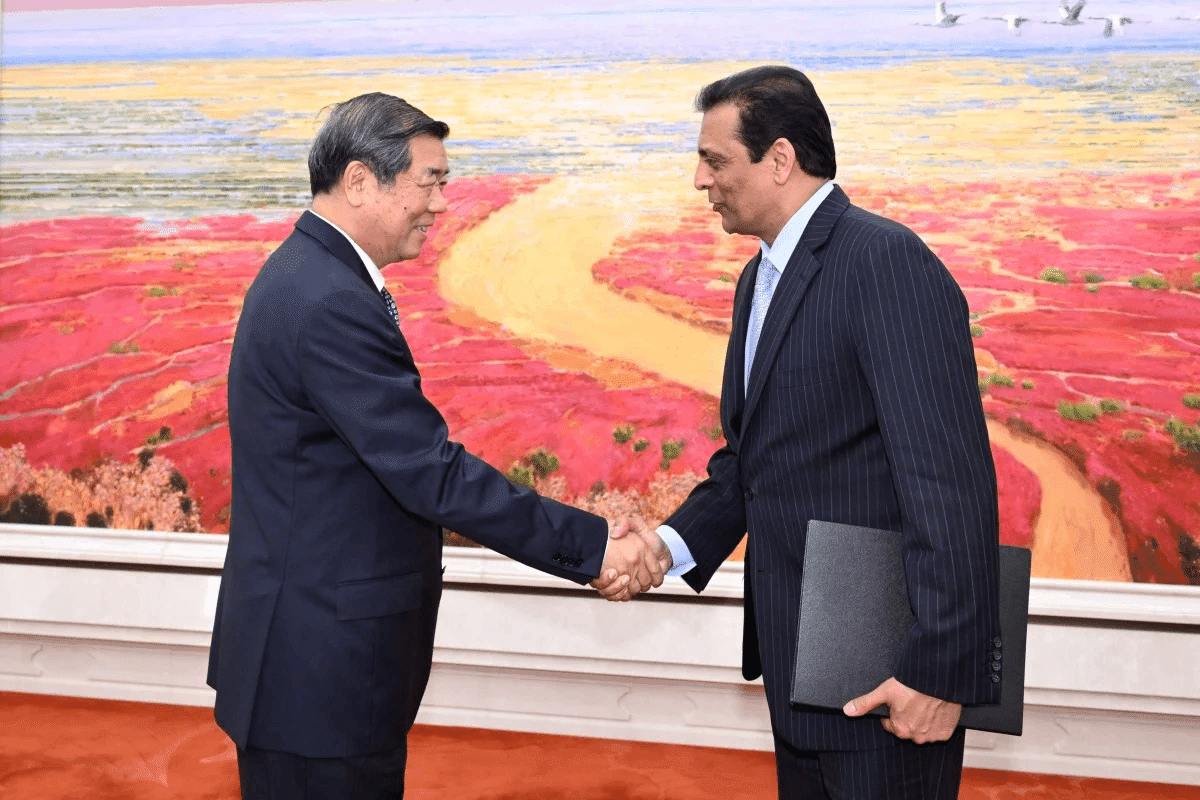China hopes US firms can ‘play a strong role’ after top executives visit Beijing, SCMP, July 23, 2024.
A delegation from the US-China Business Council met with Chinese Vice-Premier He Lifeng and Foreign Minister Wang Yi in Beijing on Monday

Source: SCMP
A heavyweight group of US executives, including FedEx Corporation CEO Raj Subramaniam, met with Chinese Vice-Premier He Lifeng and Foreign Minister Wang Yi in China on Monday, with Beijing hoping the influential lobby group can help US firms “play a strong role” in the world’s second-largest economy.
The official People’s Daily newspaper confirmed that US-China Business Council board chair Subramaniam had led the delegation for its meetings with He and Wang.
The visit confirmed an earlier Post report that the group would travel to Beijing to obtain first-hand insight following the conclusion of China’s widely-watched third plenum.
The four-day third plenum concluded on Thursday, with a 22,000-word resolution document unveiled on Sunday containing a wide range of measures approved by the Central Committee of the ruling Communist Party.
Vice-Premier He said that China hoped the US-China Business Council could “play a strong role” to encourage American firms to seize the opportunities offered during the process of modernisation with China, which would lead to win-win cooperation and development.
A pleasant environment for the US and China will let everybody benefit
--Wang Yi
In an official statement from the Ministry of Foreign Affairs, Wang said that the group came to Beijing “at the right time” because they could feel the “new vibe” of China as it undergoes deep and comprehensive reforms.
“A pleasant environment for the US and China will let everybody benefit, but an unpleasant environment between both countries will naturally lead to the suppression of cooperation and exchanges,” Wang added.
“[We] hope the US-China Business Council will make use of its connections and influence, in conjunction with their real experiences in China, to talk about China to the US government and Congress in a realistic, objective and rational manner.”
US-China relations have been brought further into the spotlight as November’s US presidential election nears, with Republican Party candidate and former president Donald Trump having already proposed high tariffs on Chinese products.
Trump’s running mate J.D. Vance has also taken aim at China, which he described as “the biggest threat” to the United States.
Roberta Lipson, the CEO of healthcare company Chindex International, Boeing Global president Brendan Nelson, Amit Sevak, the president and CEO of Educational Testing Service, and US-China Business Council president Craig Allen also attended the meetings in Beijing.
Subramaniam said that the US business sector would “continue to explore the Chinese market with confidence”, and that the US-China Business Council hoped it could “make more contributions” in the bilateral trade and investment relationship, according to the People’s Daily.
Before the delegation arrived in Beijing, the Guangzhou government said that the US business representatives had also met with mayor Sun Zhiyang on Friday, as the southern city is the “first choice destination” for American firms if they want to invest in China.
Commercial data company Dun & Bradstreet Holdings, General Electric, industrial manufacturer Milliken & Company, FedEx, food company Kraft Heinz, medical device company Becton, Dickinson and Company, as well as agriculture firm Cargill, took part in the meeting, according to the Guangzhou government.
On the same day, the delegation also met with Guangdong governor Wang Weizhong, according to a report by the Southern Daily newspaper.
